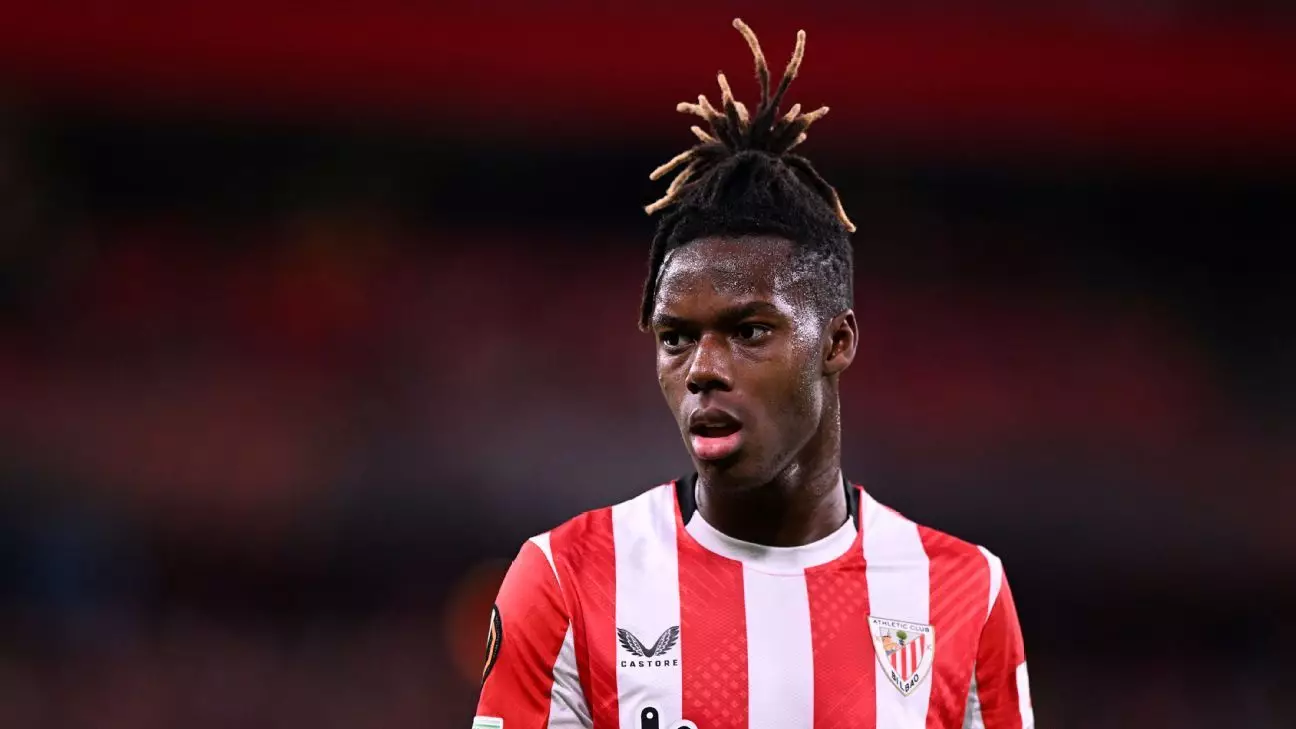Nico Williams, the forward for Athletic Club and the Spanish national team, has publicly declared his foremost ambition in life as combating racism. Born in Spain to Ghanaian parents, Williams is acutely aware of the complexities surrounding racial identity within the context of Spanish football. Through his platform as a professional athlete, he emphasizes the responsibility he holds in raising awareness about the pervasive issue of racism, not only in sports but also in society as a whole.
Williams’ statement reflects a growing acknowledgment among athletes regarding the significant societal issues that extend far beyond the pitch. Following Spain’s triumph at Euro 2024, he articulated, “My brother, Iñaki Williams, and I, as black people, have an important task in this life, which is the fight against racism.” This declaration positions him alongside other prominent figures who believe that public personas can effect real change when they leverage their influence for social justice.
Racism has long been a blight on the landscape of Spanish football, as seen in high-profile incidents involving players like Vinícius Júnior. The Brazilian forward has faced hostile treatment from fans since his arrival in LaLiga, prompting him to declare that Spain has a pervasive racism problem. Williams, acknowledging the severity of this issue, stated, “It’s true that in football there are too many insults.” His recognition of the collective responsibility shared by players and fans illustrates a desire for a more inclusive and respectful sporting environment.
Much of the discourse about racism in sports revolves around accountability. The acts of racial abuse, whether in the form of insults or discriminatory behaviors at matches, reflect a concerning trend that calls for reflection and reform. Williams articulates a sentiment common among many athletes: the game should be a platform for enjoyment and solidarity rather than a stage for hostility and division.
The commitment from LaLiga and the Royal Spanish Football Federation (RFEF) to combat racism has been met with cautious optimism. Recent judicial actions, including the sentencing of a Mallorca fan for racial abuse against both Vinícius and Samuel Chukwueze, signify a step towards accountability. For Williams, this shows that progress is being made, albeit slowly. He posits, “I think that Spain is moving forward on the right path, and we must continue like this,” emphasizing the importance of unity in this ongoing struggle.
Williams is not just a witness to change; he actively sees himself as a symbol of a multicultural Spain. His experiences highlight that immigrants contribute significantly to Spanish society, working hard for a better future for their families. Recognizing this truth is essential not only for social cohesion but also for challenging the negative narratives often surrounding immigrant communities.
Nico Williams’ resolute stance against racism sheds light on the intersection of sports, society, and identity. As athletes like him continue to use their platforms to advocate for justice, the hope is that these efforts will lead to lasting change in Spanish football and beyond. His story reflects a broader narrative of resilience, responsibility, and the power of unity in the fight against racism, reinforcing the importance of dialogue, education, and reflection in creating a better future for all.

